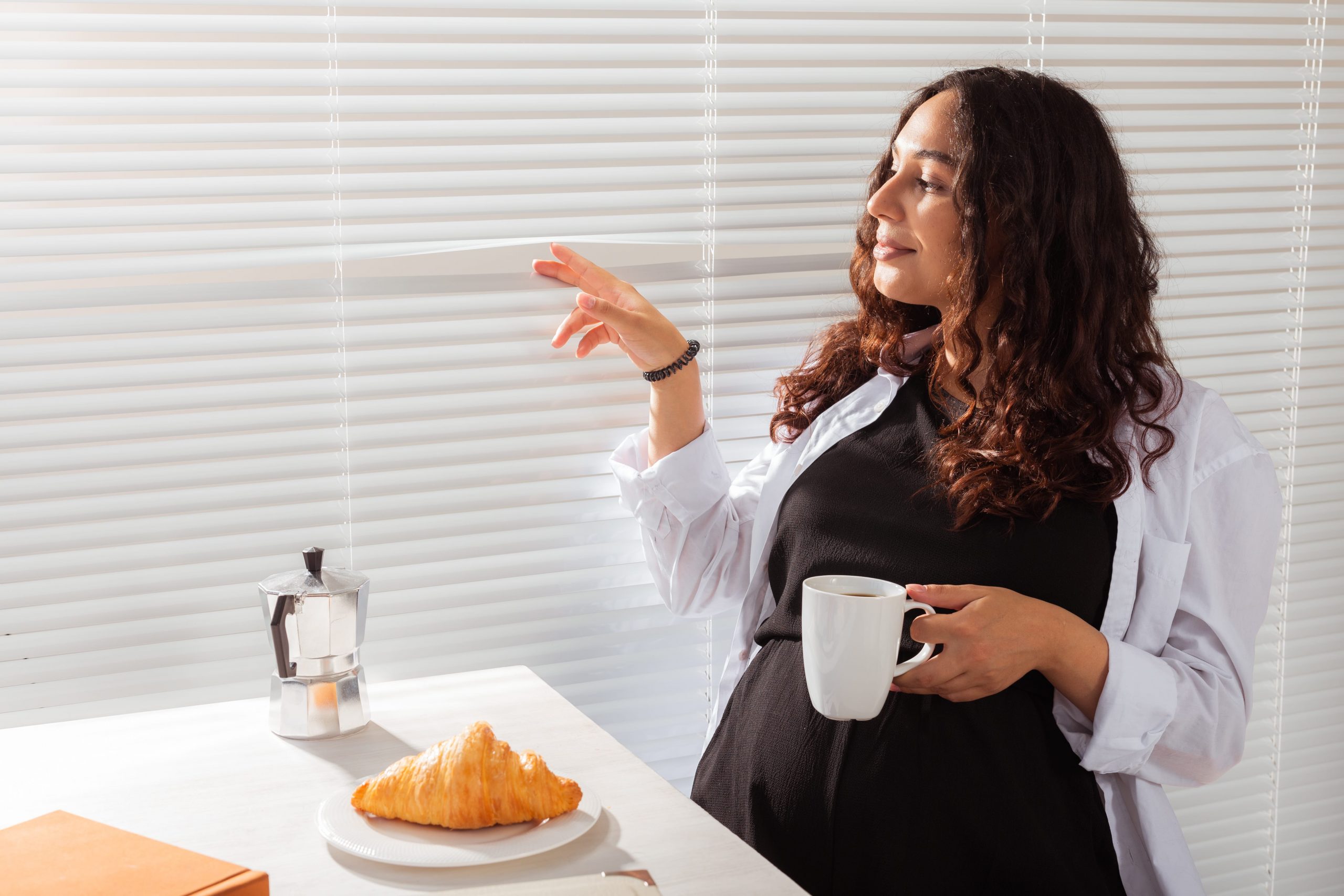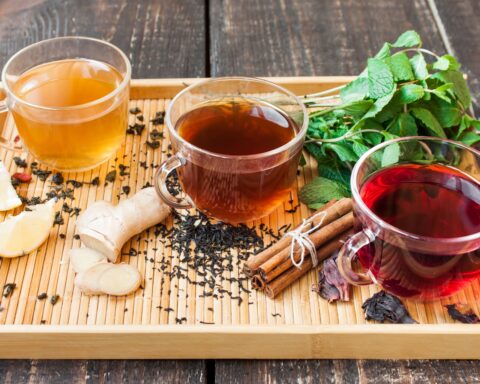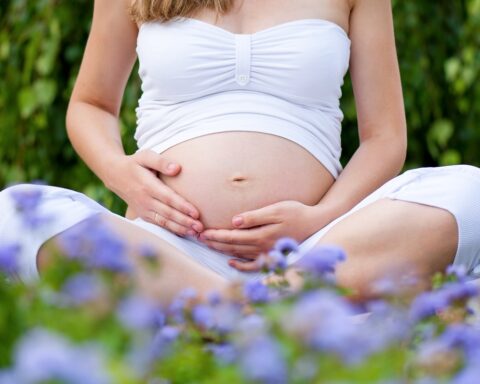Tea is a beverage that is perceived to be harmless. It is the most common beverage worldwide. But have you ever thought of its safety during pregnancy? Pregnancy can be a wild ride but an exciting period nonetheless – albeit with anxiety and restrictions. These restrictions are meant to keep both the mother and the baby safe. Some drinks are not safe during pregnancy, but pregnant women require more fluids during this period. Some may find it easier to drink more tea than water. Some believe that tea prepares them for childbirth, especially if taken regularly during the last weeks of pregnancy. Tea is a natural beverage, so many perceive it to be safe during pregnancy. On second thought, however, different teas exist, and some are safer than others during this time. This article will discuss how safe tea is during pregnancy and examine which options are safe during pregnancy.
Safe tea during Pregnancy
Caffeinated tea.
Black, green, and oolong tea are made using leaves from a tree known as Camellia sinensis. This tree contains caffeine. Caffeine is a stimulant that increases the activity of both brain and the nervous system. This stimulant might pose a danger to the pregnancy. However, a low intake of caffeinated tea may not be harmful. One cup of green tea contains around 50 mg of caffeine, one cup of black tea contains 50-53 mg of caffeine, while one cup of oolong tea contains around 60 mg of caffeine. Regular intake of any caffeinated drink during pregnancy affects the development of the child.
Caffeine can reach the baby through the placenta. The baby’s liver may fail to break down this caffeine as it is not fully developed. It would increase the chances of preterm birth, stillbirth, congenital disabilities, and miscarriage. Such effects might happen if a pregnant woman takes more than 300 mg of caffeine in a day. However, some women may take a high amount of caffeine during pregnancy and fail to show such side effects. Women’s genetics determines their sensitivity to caffeine.
Therefore, pregnant women should be careful not to take a high amount of caffeine than recommended. However, caffeinated tea contains little amount of caffeine which might not pose any danger to pregnant women. Research shows that responsible caffeine intake boosts energy levels, relaxes the body, and relieves headaches, which is quite common in pregnancy.
Safe herbal tea
Ginger tea
Ginger is a common spice that is used during pregnancy. It is safe for use during all stages of pregnancy. Ginger can be used to make ginger tea which is as well safe. Pregnant women use this tea as a remedy for nausea and morning sickness.
Lemon tea
Lemon tea is safe in pregnancy. Pregnant women use it to relieve lack of sleep and anxiety in pregnancy. It also reduces nausea. However, some people do not use it during pregnancy as they claim that it increases acidity and heartburn.
Raspberry tea
This tea is made from a raspberry leaf first grown in Europe and some parts of Asia. This tea is safe for pregnancy. Research has shown that this tea has a unique role in pregnancy. It prepares the uterus for labor and also shortens the labor period by at least ten minutes. Raspberry tea also minimizes bleeding after childbirth. Midwives encourage pregnant women to use it during the second and the third-trimester making labor less complicated. During the first trimester, it is used to relieve nausea and vomiting.
Peppermint tea
This tea is made from the peppermint plant, which was first grown in Europe and Asia. It is made from either dry or fresh leaves. Safe during all the three trimesters in pregnancy for both the mother and the baby. This tea is caffeine-free. It is commonly used to relieve digestive problems in pregnancy. The most common problems solved by this tea are nausea, gas, heartburn, and stomach pains. Peppermint tea is also used to relieve headaches during pregnancy.
Dandelion tea.
This tea is made from the dandelion leaf. It is safe for use during pregnancy. It is mostly used during the third trimester to prevent fluid retention. It improves the functioning of the kidneys hence eliminating edema. This tea is high in potassium minerals.
Unsafe tea during pregnancy
Fennel tea.
Fennel tea is made from dried fennel seeds. It is unsafe to use during pregnancy. Drinking this tea leads to the production of estrogen hormone. During pregnancy, there should be a balance in reproductive hormones. Increased production of estrogen may confuse the pregnant body. It increases the chances of preterm birth and miscarriage.
Sage tea.
This tea contains a chemical known as thujone. Gynecologists use this chemical to trigger menstruation. If used during pregnancy, it may cause miscarriage. It can increase the chances of preterm birth.
Thyme tea.
Pregnant women should completely avoid this herbal tea. It can induce labor at any stage of pregnancy. If one must use it, it should be done rarely and in small amounts, mostly in the last stages of pregnancy.
Lovage tea.
This tea should be avoided during pregnancy. It can increase the chances of miscarriage and preterm birth.
Licorice tea.
This tea is made from the licorice plant. This plant contains glycyrrhizin which is a sweetener that is used to make licorice tea. It should be completely avoided during pregnancy since it might cause cognitive defects in the baby.
The bottom line
Pregnant women should be keen to consider the type of tea they take for their safety and their unborn babies. Caffeinated tea such as black, oolong, white and green teas are safe since they contain little caffeine that may not pose any danger to the pregnancy. However, it would help if you took these teas in moderation to prevent ingesting excess caffeine. Other teas such as peppermint tea and raspberry rea are safe and beneficial to the pregnancy journey. The first and the second trimesters are quite sensitive; pregnant women should seek reliable advice on using any herb tree.
Credits
We would like to thank the below contributors who have helped us to write this article:
- FDC – Giejo Magazine Article - July 29, 2023
- MoriMa Tea the – Chinese tea culture - April 26, 2023
- Missionary Position – Least Likely To Bring You To Climax - April 7, 2023









